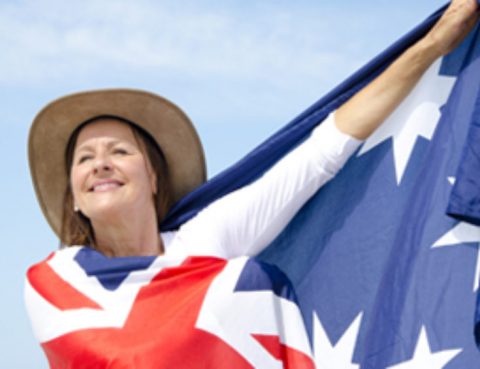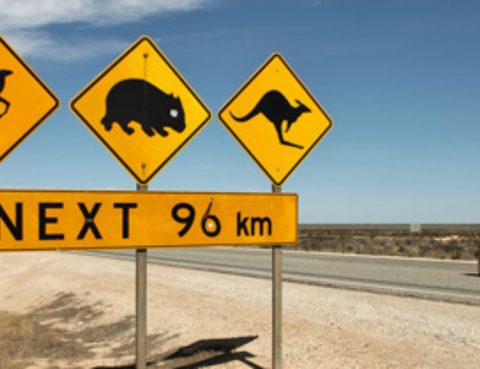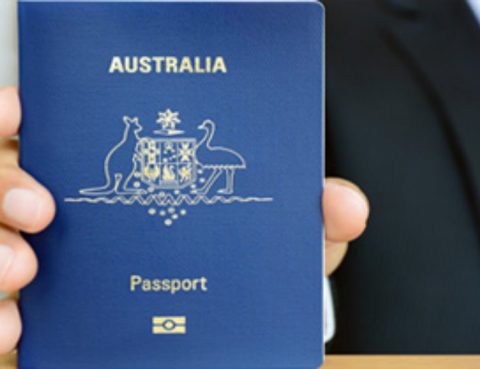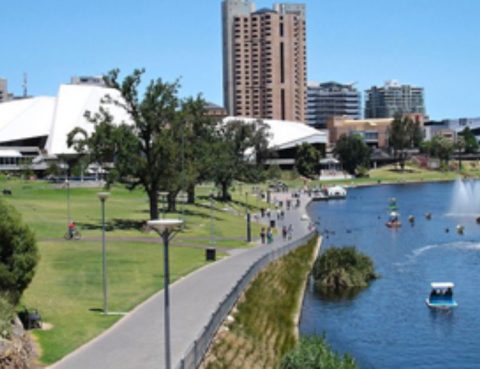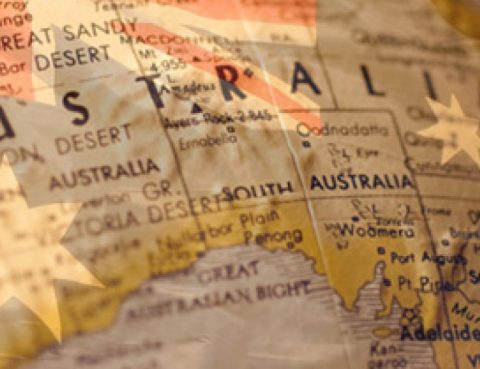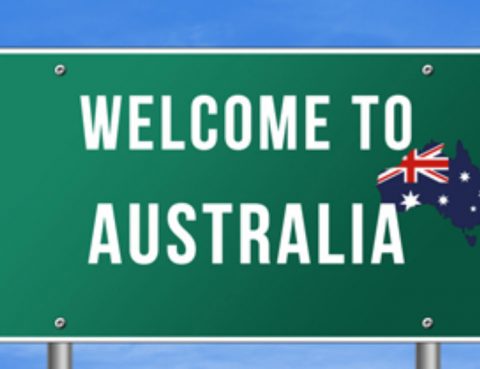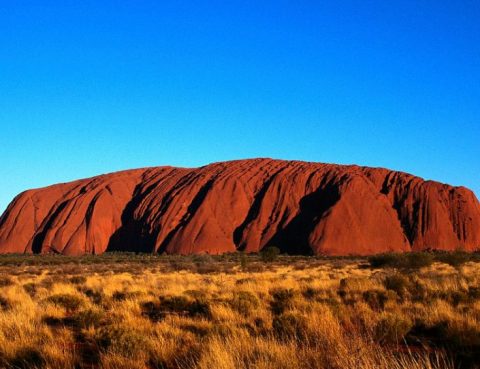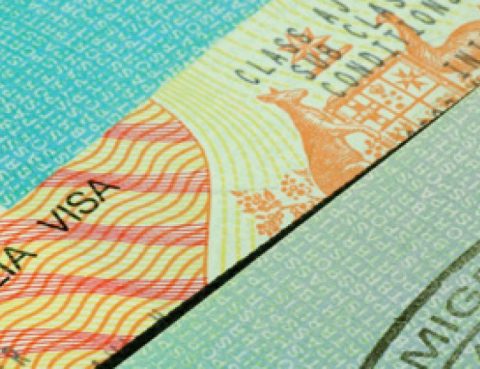Except for Australian and New Zealand citizens, everyone needs a visa to travel to Australia. A visit visa or a visitor visa allows you to travel to Australia for a holiday or to visit family and friends. You cannot work on a visit visa. Your local travel agent can advise you on the process and charges for visit visas. It is advisable to take out a comprehensive travel and medical insurance before you travel, as medical treatment is very expensive in Australia for non-Australian citizens.
At best migration services we process applications for eligible candidates who wish to migrate to Australia. In order to become a citizen of Australia, you first need to attain a Permanent Resident visa (PR) before you can apply for citizenship. Australia allows dual citizenship but you need to check with your country if they also allow dual citizenship.
The migration process is quite simple, Australia needs skilled workforce, and if your qualifications are in the skilled occupation list you stand a chance to qualify for migration. Australia is an English-speaking country so is it mandatory that all applicants should have a functional level of English. There are some exceptions but as a rule, you have to pass an International English Language Testing System (IELTS) or other approved testing systems. If you feel that your level of English might not be sufficient an English language class is advisable. Basically, there is a point test that you need to pass. Points are given for age, English language ability, qualification, experience etc. The higher the score the greater are your chances of success.
Fill out our enquiry form and one of our registered MARA agents will get in touch with you to advise you if you qualify for the migration programme or not. Sometimes your current qualifications might not be sufficient but a course in Australia could strengthen your application. There are various options and our agent will advise you to ensure that we do all that we can to help realise your dream of living in Australia.
Permanent residents of Australia can purchase homes in Australia. Foreign nationals who do not have Permanent residency can purchase homes only after getting approval from the government. The government grants approvals only when foreign investment leads to an increase in the supply of new housing. Approvals are granted for:
- Purchase of vacant land, provided continuous construction commences within 12 months.
- Purchase of existing residences for redevelopment and it must remain unoccupied during redevelopment.
- Purchase of any units, townhouses and house/land packages in a new development.
House and Land packages can be yours for as low as AUD 200,000/-
Owning your dream home is quite an achievable dream in Australia with the government offering first homes owners a grant coupled with long-term low-interest bank rates. Open skies, playgrounds in almost every suburb and friendly neighbours are what makes Australia one of the best places in the world to raise a family. Did we mention that schooling is free and university students having the option to take government student loans to pay for their education? One of world’s finest medical facilities with FREE medicare?
BMS offers Post Landing Services for those need help settling in Australia. Post Landing Services can help you find work, accommodation, school/college enrollments, purchase of homes etc. Speak to one of our BMS agents and we can help you with all your settlement needs.
Why live and work in Australia?
Why get a Permanent Residency for Australia?
The lifestyle of course!
Imagine driving out of your family home, a corner plot in a green and friendly neighbourhood. The skies are bright blue and blocked only by the branches of a gum tree. Old Tom your elderly neighbour is tending to his garden and waves to you as you drive past. Jenna and Harry, dressed in their bright maroon uniform are scurrying off to school and raise a hand for you to let them cross. You brake and let them pass, as you laughingly tell yourself that these kids will always be late. You drive for another five minutes and hit the freeway and the vistas really change. Gone are the sprawling suburban neighbourhoods and instead you are met with rolling hills and even chance upon a group of kangaroos. Forty minutes and you are in the city, tall buildings, ancient cathedrals, verdant parks and the smell of freshly roasted coffee. You find your way to the office Cark Park and walk up to your desk, a cubicle that is already filled with your mates guzzling coffee and talking about the latest footy game.
Scenes straight out of a movie? Guess again, it’s everyday life; this one is a page out of my husband’s daily commute to work. We live in Willunga, South Australia but the rest of Australia is pretty much the same. Five years ago en route to Perth we decided to stop by Adelaide, for a short sightseeing trip and we never left. The friendly neighbours, the amazing food, the gorgeous scenery and we were sold!
We went to Sydney for a Christmas holiday and enjoyed the busy city life but Adelaide is where home is for us. Sydney is as gorgeous as any city can get with the culture, the opulence, the busy nightlife, the gourmet food and the amazing shopping but as a family of five with three children below six, Adelaide with its family friendly culture wins hands down.
I am a migrant and I called Dubai home for 25 years of my life, grew up there, studied in Gulf Indian High School and started my career working with Arabian adventures, Marhaba and eventually with Emirates Airlines as cabin crew. I got married and migrated to Australia. Today after five years I am an Australian, a mother of three gorgeous children and happy as can be. Do I miss Dubai? No not really, went there for a brief spell to visit my brother and his family and I couldn’t wait to get back. For one the weather, my sister-in-law called it bearable but 30 seemed too hot. In Adelaide we are used to low 20s and when it crosses 30 we lounge around the pool or go for a swim in the ocean.
The metros were too crowded and streets too busy, it was noisy and not many places for the kids to visit. The malls were breathtakingly beautiful but how many times can you admire the Burj Khalifa? A week and my kids were pining to go back home, and why not?
We have a big grassy backyard where they jump on their massive trampoline, scooter across the garden path, dig and muck around the garden which has maple trees, olive trees, an apple tree, a peach tree, an orange tree, a plum tree, etc. We live ten minutes walking distance from the beach, the kids playground is a stone’s throw away, there is a jogging and walking track that is across natural Australian bush that the kids call a jungle. The State library is a short walk across and every Tuesday there is story time. We live very close to a shopping mall and during school holidays there is free face painting, free balloons, free storytelling and other paid activities, $2.50 per child for activities like painting, decorating donuts, etc.
This is an ordinary lifestyle, accessible to everyone calling Australia home. Large homes with good sized backyards, Free family activities all year around, Free medical and dental for school kids, Free primary and secondary schooling, Free vaccinations for children, ample parks and playgrounds.
For the rich? Private schools, Private hospitals, Trips to the Zoo which cost about $30 per adult, outings to wildlife parks about $15 per adult, trips to Kangaroo island, weekend holidays to Victor Harbour, river cruises etc.
The lifestyle is what sells living in Australia, the clear blue skies, the fresh air, the gorgeous vistas, the fresh food and the stress-free living. Migrating here is not as difficult as people think it to be. A degree and five years experience with good English language ability is all that is required.
At BMS our MARA registered Migration Lawyer can assess your case and advise whether you qualify or not. As migrants, we know how daunting relocating to a new country can be which is why we also offer post landing services to help you resettle and make a home.
Dream to live and work in Australia but worried about the expense? Australia can be quite budget friendly is you shop smarter. Taking advantage of sales, promotions and budgeting can literally stretch the dollar. Boxing day sales are the most anticipated sale events with people sometimes lining up for hours before the stores open. Sites like Groupon can offer amazing deals on dining, holiday trips, beauty packages etc. Factory outlets always offer stock at much lower prices without any compromise in quality.
The first question many people considering moving to Australia ask, is what’s the cost of living in Australia? Immigrating to Australia is a big step, and the thought of adjusting to a new culture and new lifestyle can be daunting.
As an ex-migrant, I was a mother of a 1-½-year-old boy when my husband and I relocated. I can recollect some of my anxieties. How much will the groceries cost? What will be our daily expenditure? What’s the ballpark figure for our monthly expense?
As cabin crew with Emirates, I was no stranger to Australia, having visited Sydney and Brisbane countless times, I was quite comfortable with the lifestyle and madly in love with the friendly, easy going and laid back Aussie culture. A vacation, however, is very different from day to day living.
For those of you who haven’t visited Australia my advice is, don’t have any preconceived notions or expectations, come with an open mind. I say this not because Australia will disappoint but rather because the human mind is quite anticlimactic. The same reason why you don’t want to hear the storyline of a movie before you see it or know the ending of a book before you finish reading it.
An open mind without any expectations is sure to impress and saves you from creating an imaginary utopian society that reality can never compete with.
There is no ballpark figure when it comes to living in Australia because it really depends on the kind of lifestyle you are looking for. A family home with a big lawn and backyard, frequent trips to the zoo, wilderness parks, play n fun café etc. cannot be compared with sober living in a small rental apartment in the city making use of the free tram service, simple meals at home and walks down Torrens river.
What can be addressed is the basic question of how expensive is everyday living in Australia.
How much do groceries cost?
Again depending on your taste and budget level. Woolworths, Coles, Aldi, and IGA/Foodland form the standard supermarket outlets. Their own brands are much cheaper than the commercial ones and in some case, the difference in taste is hardly noticeable as all products are produced and sourced from Australia. They are cheaper because of the simple branding, zero advertising, and no middlemen charges.
Are clothes expensive?
Again, it is budget dependent. There is no point talking about Designer wear as anyone used to that quality will hardly be bothered about price. Having said that if you are not too fussed about latest season picks, waiting for stocktake sale, mid-season sales and our ever-famous boxing day (26th December) sales can get you a wardrobe for half price if not 70% off!
As a mother of three boisterous kids that seem to shoot up every term, I always shop the clearance aisles of famous brands. I also purchase larger sizes in styles that I like for when my kids will grow bigger. I purchase winter jackets on clearance during summer in one size large for my kids and vice versa. Big W, Target, Kmart and Best for Less are the equivalent of reasonably priced clothes.
For the extremely budget conscious Australia has a culture of recycled clothes or preloved clothes shops, a fancy name for second-hand clothes and bric-a-brac. As any mother would know kids grow out of their clothes before they wear them out and so these second-hand clothes are almost good as new at throw away prices. With most proceeds going to charity or a good cause. There have been instances where one can find designer wear like Guess, Calvin Klein etc. from second-hand stores.
I hope this has given you a rough idea that Australia isn’t as expensive as one might imagine, it is still more expensive than the US but that’s another continent!
Is money truly the measure of happiness and success? Australia offers so much more than just higher income, personal freedom not just of speech but also of stigmas of traditional societies where one is forced to be either a doctor or engineer to be successful. The opportunity to do so much more than just work, hoard and survive; to be able to live, dream, explore and think freely.
One of the top reasons people cite when deciding to migrate is the Standard of living offered by Australia. What does one mean by ‘standard of living’? Generall, it relates to the quality of life. This mainly takes into account the necessities and comforts required by an individual. It is a fairly relative term as what is a necessity varies from person to person and what is best for one barely good enough for another.
Happy Planet Index started with a goal of ‘measuring what matter’ and 140 countries were ranked based on the government’s ability to provide ‘long, happy and sustainable lives.’ Happiness wise Costa Rica ranks number one and Vietnam second.
Which basically illustrates the fact that happiness is very relative. An extremely disadvantaged person either financially or physically can report himself/herself to be extremely happy but that cannot be used to generalise the fact that anyone living in his/her situation is bound to be happy. Humans are not mathematical equations devoid of free choice, A+B does not always equal to C.
So how does one make a generalised statement that a particular country offers an excellent standard of living and hence an ideal migration destination? The World Bank retains a very materialistic viewpoint and takes into account primarily the level of income and rates Australia as high-income level. Australia ranks 13th in the world GDP comparison which according to World bank makes it a country with high standard of living.
Is money everything, is happiness a direct result of income and consumption? Humans aspire to greatness, have dreams and seek habitats that are conducive to them. While money does solve most problems being filthy rich in a highly autocratic society that restricts freethinking is akin to a luxurious high-security prison.
The social progress Index takes a less material view than the World bank and instead ranks countries in three categories, meeting Basic human needs (Nutrition, basic medical care, water, sanitation, shelter & personal Safety), Foundations of wellbeing (Access to basic knowledge, Access to Information & Technology, Health & wellness and ecosystem Sustainability), and Opportunity (Personal rights, Personal freedom & Choice, Tolerance & inclusion and access to advanced education) As per the Social Progress Index, Finland ranks first with Australia coming in 4th. In the Basic Human Needs Dimension, Australia performs best on Water and Sanitation and has most opportunity to improve on the Shelter component. In the Foundations of Wellbeing Dimension, Australia scores highest on Access to Basic Knowledge but lags on the Health and Wellness component. In the Opportunity Dimension, Australia is strongest on Personal Rights and has the most room to improve on Tolerance and Inclusion.
The Human Development Index (HDI) is a composite statistic of life expectancy, education and per-capita income indicators or simply put rates a long healthy life, being knowledgeable and having a decent standard of living as indicators as good standards of living. Norway ranks number one and Australia a close second.
What it basically boils down to is the ability of a government to offer a lifestyle that offers a politically stable environment, a social culture that is tolerant, and affords basic human needs like education, medical, shelter, sanitation, etc. Whilst offering opportunities to grow, dream, create and pursue higher goals. History has taught us that Human development and progress is often during times of peace and prosperity. Governments world over are quickly recognising that in order to sustain a progressive and thriving economy, visionaries, entrepreneurs, and thinkers are sorely needed.
The Australian government has one of the best policies in place to assist R&D. Australian government offers support programs to assist investors and entrepreneurs to establish or expand a business. In keeping with the demand for skilled workers needed to facilitate the economic progress, Australian tertiary education system is world-class.
Australia is, by and large, one of the best countries to migrate as it truly does offer an excellent standard of living, whether the measure is materialistic, intellectual, or aesthetic. Australia is one of the most naturally beautiful countries in the world boasting unique flora and fauna, varied landscapes from deserts, rainforests, tropical beaches and snowy mountains. Australia has been voted as having the best student cities, best city, most livable city, the best place in the world, best beaches and the list goes on.
If you are qualified, skilled and seeking a better life for yourself and your family, Australia is the place to be.
‘More to Australia than Kangaroos and Koalas’ is an attempt to showcase the diverse and exciting continent country that is Australia. Today we strut into the fashion world where Australia is making a global impact.
The Australian contribution to the world of fashion has come a long way from safari suits and long socks, as recounted by historian Margot Riley. Today Australian designers like Wayne Cooper, Collette Dinnigan, Akira Isogawa, Lisa Ho, Martin Grant, Carla Zampatti, Easton Pearson, Michelle Jank and Nicola Finetti are global sensations. A fashion design course from the prestigious RMIT university in Melbourne is often on the to-do list of aspiring designers in Australia.
Australian Fashion Weeks are an emerging force to reckon with, as the fickle world of global fashion is fast losing its fascination with the streets of Milan, London, New York, and Paris. This is entirely due to the exhausting nature of the endless runway shows that tend to showcase the same famous brands, who in a bid to overcome astronomical expenses focus on selling more lipsticks, sunglasses, and perfumes.
Contrast that with Australian Fashion weeks that showcases emerging young designers with unrestrained creativity and contagious passion and you get a paradigm shift that puts Australia on the hot spot for global fashion.
Commercial viability is threatening many fashion houses into insolvency due to the exorbitant overheads of shop rents, investments in production and materials, volatile retailer purchasing etc.
In Australia however, the digital world is offering Australian designers a cheap and successful alternative to global consumers and fashion advocates, AKA fashion bloggers, and the need to be featured in the Paris runway is passé.
Fashion has often been subdued and even nudged into metamorphosis by its clients; corsets and ball gowns have been forced into oblivion by the everyday individual that seeks comfortable and wearable with stylish imbued in every fiber and cut.
Melbourne street style offers exactly that, fusion fashion that is relaxed, stylish and wearable. Cities such as Berlin, Seoul, Amsterdam, Shanghai, Istanbul, Melbourne and Sydney are now being touted as crucibles of fashion innovation.
The Mercedes-Benz Fashion Week is reaching iconic status with the event turning into a much-awaited entry in every socialite’s diary. The media and fashion world are abuzz for weeks with a step-by-step recount of the runway and the emerging fashion trends.
The battle to be Australia’s fashion capital has been hotly contested by Sydney and Melbourne. A Global Language Monitor survey positions Sydney 18 places ahead of Melbourne but only time will tell if this position holds as retail giants H&M and Uniqlo opted for Melbourne to open their stores.
More to Australia than Kangaroos and Koalas’ is an attempt to showcase the diverse and exciting continent country that is Australia. Today we look at Australia’s ‘fair go’ policy. It is the ideal that every Australian should have an equal opportunity to establish, improve and maintain their wellbeing and have access to services and opportunities that support this irrespective of his or her ethnicity, religion, culture, gender, etc.
Every Australian holds the ‘fair go’ as a fundamental ethos and rates it higher than all other values. It’s a quintessential Australian phrase and it means that everyone deserves a ‘fair go’ or equal opportunity.
What is ‘fair go’?
It is the ideal that every Australian should have an equal opportunity to establish, improve and maintain their wellbeing and have access to services and opportunities that support this irrespective of his or her ethnicity, religion, culture, gender, etc.
No other country in the world holds this honourable code as a core nationalistic value. While many fight for equality, preach tolerance, teach these tenets as an ideal and even as a nation regard it as ideal, only in Australia will you find it as an unwritten law. Australia has a long history of ‘underdog’ culture resulting in a profound respect for humility. Australians aspire to a fair society that enables everyone an equal opportunity to improve their wellbeing.
In most countries having wealthy parents confers an unfair advantage to the children, this is not so in Australia where personal ambition and natural ability enables children of the poorest parents without post-secondary education to acquire highest status jobs. Public schooling is Free and of world class standard and tertiary education can be accessed through government study loans. Research shows that individuals from every stratum move into every other stratum in large numbers, no socioeconomic group is held back.
The origins of ‘fair go’ began with the establishment of Australia as a penal colony. To prevent civil unrest convicts and freeman were given equal food rations and meted out similar punishments for crimes without any bias. Convicts could earn their freedom and an equal place in society. The first notion of ‘fair go’ was being offered a helping hand and that your birth did not determine your destiny. Today Australia boasts an egalitarian society where even the prime minister is addressed by their first name.
Australia is a classless nation in the sense that every individual is treated with respect and his or her job status does not equate with more or less favour. A waitress in a café will be afforded the same treatment as a CEO of a conglomerate. In fact, recent wage data indicates that some skilled manual workers fare considerably better than some higher professionals.
Overall Australia is not just a high-income nation among the first world countries but it is a land steeped in love, tolerance, and new beginnings. A fact reflected by the World Giving Index, it cites that 70% of Australians give money to charities, 38% of the population volunteer their time for organisations and 64% of the population has helped a stranger.
For a new migrant Australia is nothing short of utopia, a land that affords equal opportunities does not discriminate on the basis of race or culture, and there is no prejudice associated with one’s job status.
The origin of Dingos in Australia sheds new light on early Migration history. The Dingo is Australia’s wild Dog and is found in all states of Australia except Tasmania. The Dingo closely resembles Indian dogs and it is believed that Indian migrants brought the dingos to Australia around 4000 years ago. This new theory is supported by the fact that Dingos, stone tools called microliths and new plant processing techniques suddenly appeared together for the first time in fossil records. This strongly supports the probable theory that Indian explorers arrived on the shores of Australia bringing with them new techniques and of course the famous dingo.
Sea travel and exploration has been a part of human history for hundreds of thousand of years so it is quite likely that Australia wasn’t such an isolated continent as it was once believed to be. Lead researcher Dr. Irina Pugach and colleagues examined genotyping data from Aboriginal Australians, New Guineans, island Southeast Asians and Indians found an ancient association between Australia, New Guinea, and the Mamanwa group from the Philippines. They estimate that these groups split from each other about 36,000 years ago. Mark Stoneking says: “This finding supports the view that these populations represent the descendants of an early ‘southern route’ migration out of Africa, while other populations in the region arrived later by a separate dispersal.“ This also indicates that Australians and New Guineans diverged early in the history of Sahul, and not when the lands were separated by rising sea waters around 8,000 years ago.
This new research (https://www.mpg.de/6818105/Holocene-gene-flow_India-Australia) comes from Germany’s Max Planck Institute for Evolutionary Anthropology.
NEW YORK, USA – A chilly climate isn’t keeping Norway from basking in the glow of being named the world’s happiest country on Monday, March 20.
It surged from fourth place in last year’s UN assessment all the way to the top spot, according to the World Happiness Report 2017.
Other top countries on the list included Nordic neighbors Denmark and Iceland, as well as nearby Switzerland.
“All of the top four countries rank highly on all the main factors found to support happiness: caring, freedom, generosity, honesty, health, income and good governance,” the summary explained.
Rounding out the top 10 were Finland, in fifth place, the Netherlands (6), Canada (7), New Zealand (8), and Australia and Sweden tied for 9th.
The entire top 10 were affluent, developed nations, although money is not the only ingredient for happiness, the report said.
In fact, among the wealthier countries the differences in happiness levels had a lot to do with “differences in mental health, physical health and personal relationships: the biggest single source of misery is mental illness,” the report said.
“Income differences matter more in poorer countries, but even their mental illness is a major source of misery,” it added.
Another major country, China, has made major economic strides in recent years. But its people are not happier than 25 years ago, the report found. China ranked 79th in the study of 155 countries.
The United States meanwhile slipped to the number 14 spot due to less social support and greater corruption — the very factors explaining why Nordic countries fare better on the happiness scale.
Norwegian Prime Minister Erna Solberg welcomed the report as “a nice validation on a Monday morning.
“For many years, Norway has been behind Denmark in this ranking.
“I’ve made a point of it in many dinner speeches in the Nordics. Now I must find something new!” she said in a message on Facebook in Norwegian.
“But even if we top this statistic now we continue to prioritize mental health care, to improve follow-up of children and young people because many are still struggling.”
The World Happiness Report 2017 was released by the United Nations on the International Day of Happiness. It is the fifth such report since the first was published in 2012.
“Since then we have come a long way. Happiness is increasingly considered the proper measure of social progress and the goal of public policy,” the report said.
While the 10 countries at the top remained the same as in a 2016 update, those in the bottom 10, which had the lowest life evaluations, showed greater variation.
The Central African Republic, which returned to the surveyed group, came in dead last at 155, with Burundi and Tanzania doing only slightly better.
Among the 20 largest losers, five were in the Middle East and North Africa and five were in sub-Saharan Africa.
Source: Rappler.com
Every year, the Australian Department of Immigration and Border Protection receives thousands of work, family, student and migrant visas – many will be successful, but thousands will be knocked back.
Some applications will be refused because of fraud or ineligibility, but a number are denied due to innocent mistakes, inconsistencies or misunderstandings.
Applying for a business, partner, family, study or work visa can be a complex, demanding process – and it’s important to get it right. Here is how to do it right:
1 – Evidence is crucial
Work, family and business visas in particular can require a lot of substantiating evidence.
Relationships have to be proved, qualifications and work histories have to be demonstrated and asset holdings need to be shown.
The migration agents we spoke to said that everything you claim has to be demonstrated with evidence.
Some sources of evidence can be more influential than others, Rayner says.
Group certificates, tax returns, bank records and pay-slips are effective for proving employment.
Wealthy applicants applying for business visas can run into trouble if they have complex company or trust arrangements.
For partnership visas, the Immigration Department will demand evidence of a genuine, lasting relationship.
Joint bills and joint accounts can help with this, but given that some married couples don’t even have joint accounts, other forms of evidence are also acceptable.
2 – Be consistent
The Immigration Department will cross-check all of the information submitted, as well as bring up previous visa applications and government records to check for consistency.
Clearing up an inconsistency, even if it was innocent or accidental, can delay the process, cost money for professional advice, and potentially risk a denial.
Some migration paths involve multiple applications and multiple visas – such as the path from student, to graduate, to permanent resident – so ensuring all details on the applications remain consistent is vital.
3 – BE ACCURATE
The importance of accuracy is something all three agents agree on.
“We’re seeing a lot more applications getting picked up because of small, often very innocent mistakes,” Glenn Rayner tells us.
It’s important for applicants and it’s important for agents, Rowena Prasad says.
Being as detailed and accurate as possible – and cross-checking for consistency – will make your application process much smoother.
4 – BE HONEST
Acting with total honesty and integrity throughout the process is important, and if you get caught out the consequences can be serious.
The Department can issue bans on lodging further applications, and it will reflect poorly on your character for all future attempts.
That’s particularly important for Form 80, the identity and character assessment form.
The bans can be overturned in certain circumstances, but once you are issued a ban notice, it’s quite difficult to turn it around.
Providing fraudulent documents will earn you a quick, well-deserved denial, the agents said.
5 – Be organised
Being organised and laying out your documents logically and coherently can make the application process faster and easier for both the applicant and the assessor.
Highlighting relevant sections in documents, making sure they’re in chronological order, and that files are orientated the right way round is advisable.
You should make sure anything that requires translating is submitted with both the original and the translation.
Digital files should be uploaded and named with a description – ‘Passport’, ‘Police Certificate’, ‘Medical Certificate’ etc.
This will also assist you with your own record-keeping and locating documents if they need to be re-submitted or used for later applications.
This is important for resolving any potential disputes and keeping track of what you have already submitted.
6 – BE AWARE OF INCONSISTENT PUBLIC RECORDS AND SOCIAL MEDIA PROFILES
Applicants should be aware that the Department will search through public records and social media profiles, and verify educational records with the original institutions.
There are legitimate reasons for some inconsistencies, but anticipating them and pre-emptively explaining potential concerns is the best approach.
Information on public social media profiles which is inconsistent with information in your application could cause headaches.
Rayner tells us he had a similar issue.
That issue cost the applicant time and service fees to resolve.
In a recent case which went to Federal Court, an asylum seeker was denied his visa based partly on his Facebook profile.
On his profile he described himself as Muslim, while in his application he said he had converted to Christianity.
7 – ABIDE BY TIMING AND DEADLINE RULES
Being aware of timings and submission rules is important, as the Department can be quite inflexible.
For example, there’s a requirement for some visas that you pass an English test and submit the results in the first part of the application.
You should not only be aware of deadlines, but also expiration dates.
Partnership visas can take upwards of 12 months to process, but require recent medical certificates at the time of processing.
Missing a deadline even by a small margin can void an entire application, but in a small number of cases there can be ways around it.
8 – Pay attention to detail
It’s important when it comes to accuracy, but it’s also important when it comes to following instructions and abiding by a process which can – at times – be counter-intuitive.
There can be several, similar headings – and the right one may not be the most intuitive one, so it’s important to check.
9 – Make sure you use the right visa
It may sound pretty basic, but this one has tripped up more than a few people.
If you’re entering the country with the intention of staying long-term, you need to use the right visa at the first point of entry, or make sure you’re eligible for a bridging visa.
That could lead to your tourist visa being cancelled, or not being allowed in the country – and if that happens then it could have implications for future applications he says.
Some allow you to stay in Australia while they are being processed, others do not.
10 – USING A MIGRATION AGENT
A registered Migration Agent will be able to provide advice on which visa is most appropriate, assist with lodging a well-prepared application, and will know about immigration laws and procedures.
The Department says that using an agent can make the whole process easier and faster, but it is not a requirement.
Unsurprisingly – given they’d be out of a job without their clients – most migration agents recommend seeking professional advice and assistance.
The Department of Immigration runs a register of Migration Agents and binds them to a code of conduct.
They are required to charge reasonable fees and perform with competence and professionalism.
You can check to see if an agent is officially registered online, and you should ask for their registration number.
The Department says that unregistered agents have been known to defraud clients and lose important paperwork.
You can also find information about visas and the application process online.
Feel free to contact Best Migration Services for any questions.
Source: https://www.sbs.com.au/


